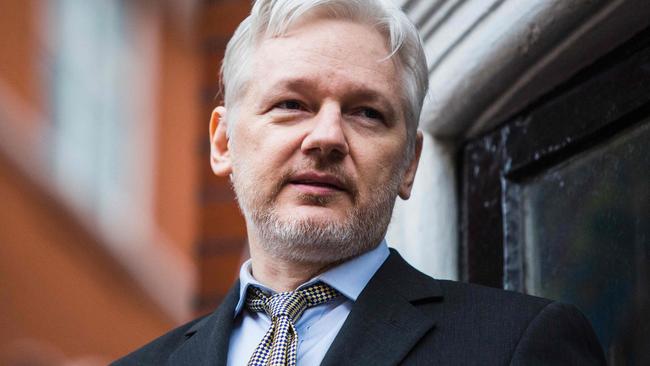Rudd plays the long game on China

THE WikiLeaks revelations of Kevin Rudd's 75-minute lunch with US Secretary of State Hillary Clinton last year has no surprises for insiders yet is a brilliant insight into how Australia manages its challenging relations with both the US and China.
This transcript exposes the atmospherics, culture and strategy that exist when Australia and the US meet to discuss China. The first point is that Rudd speaks to Clinton with an intimacy he would not adopt with the Chinese, even given his long experience with China.
For Rudd, Clinton is a partner and a friend. Remember, after Rudd was deposed as prime minister in June he had a personal meeting in Washington with Clinton that helped reconcile him to accepting the Foreign Minister job.
In this Washington lunch on March 24 last year, Rudd and Clinton are confiding in each other. Frankly, it is inconceivable that Clinton would conduct this conversation with the leader of any other US ally in East Asia. "How do you deal toughly with your banker?" she asks Rudd, penetrating to the heart of America's dilemma with China.
It is, however, revealing that the US Secretary of State asks Rudd how America can solve its central dilemma with China. How times have changed. Can you imagine, for instance, the great Dean Acheson asking prime minister Robert Menzies for tips on how to manage the Soviets? Clinton's remarks betray the present historic weakness of the US along with its trust and rapport with Australia.
Rudd always presents himself as a leader able to add value to US dealings with China. He did this with President Barack Obama as well. At this lunch, Rudd makes a load of judgments, offers advice on China's internal power structure and says that on Taiwan and Tibet, Beijing's outlook is "paranoid". In a Rudd character trait, he is indiscreet with intent. So China's leader Hu Jintao "is no Jiang Zemin", a reference to his predecessor.
Rudd presents to the US as a tough guy, calling himself a "brutal realist" on China. This defines his thinking and guarantees the Americans will never confuse him with a democratic socialist appeaser. He offers, in policy jargon, a framework for dealing with China: "multilateral engagement with bilateral vigour", the aim being to allow China to demonstrate its greater responsibility while "preparing to deploy force if everything goes wrong". In effect, Rudd presents as an agent of both engagement and realpolitik; it is a variation of "assume the best and prepare for the worst". This is a sensible approach with a powerful logic. It is nonsense to suggest Rudd is advocating war with China; he is merely warning that China's rise may not be peaceful. Beijing will not be shocked by Rudd's words - it knows him too well - but his patronising tenor, never intended to be published, is an embarrassment.
The same applies to Rudd's explanation of his Asia-Pacific community initiative. Rudd has explained this on many occasions but never this way: as an effort to keep the US in the region and deny a "Chinese Monroe Doctrine". Decoded, this means denying China regional hegemony in Asia, the way the US under president James Monroe from 1823 created its hegemony in the Americas against European imperialism. It is seminar room language that assumes epic consequences in the mouths of political leaders. Rudd took the only viable line this week, saying he had no need to ring China to explain because China knows the two nations don't always agree. Yet Beijing likes to preserve face and this puts lead in Rudd's saddle bags for dealings with China.
The Monroe Doctrine got a big run in Australian National University professor Hugh White's recent Quarterly Essay, when White speculated about China's options in Asia. The "least likely possibility" is China seeking to dominate Asia by armed force. An appealing alternative would be a Beijing Monroe Doctrine where Asian nations would stay independent but have to bow to China's imperatives. "When China becomes the strongest power in the world why shouldn't it be acknowledged as the undisputed leader of Asia?" White asks. The answer, as he knows, is that the US will not accept China's primacy or dominance in the region. Nor will any Australian government, Labor or Liberal. This is the working assumption of the entire Clinton-Rudd discussion.
Clinton summarised the US outlook; it wants a successful China with higher living standards, more democracy and taking more global responsibility. This reflects the restraint and moderation that successive US administrations have displayed towards China; witness George W. Bush and now Obama. The real point, however, is the US is going nowhere. It will stay in Asia long-term and will resist any Chinese adventurism.
Rudd wants to ensure this result and there is a bipartisan Australian strategy at work: successive Australian governments have wanted an evolving balance of power in which the US, backed by regional nations, checks the limits of China's power. It is a form of US-China de facto power sharing amid competition. This process will take Australia's alliance with the US into new dimensions, revealed again in this Clinton-Rudd meeting.
Remember, the rise of China is a plus, not a negative, for Australia. The economic partnership is a long-range mutual gain. Canberra and Beijing have a mutual interest in ensuring this partnership fulfils its potential. It is important, moreover, to grasp that China is not a unique Australian challenge. It is a problem for the region. From Indonesia to Vietnam, nations face the challenge of China's rise and, in this sense, Australia becomes part of a wider regional response.
As Clinton conceded, China has become America's banker and this highlights a financial interdependence between the US and China without precedent in world history. Such interdependence guarantees frictions yet possesses a strange upside. US analyst Joseph Nye Jr likens this to a "balance of financial terror" akin to the Cold War when the US and Soviets "each had the potential to destroy the other in a nuclear exchange but never did".
The central task of Australia's diplomacy is to reconcile China as our major economic partner with America as our major strategic partner. Australia must beware the historical pessimists who argue the rise of China makes conflict inevitable. There is no such law. Australia should also beware the prophets warning that Australia must choose between China and America. There is no inevitability about such a choice.
The purpose beneath Rudd's words goes to Australia's more exacting challenge, reconciling our US and China relationships in the long term.



THE Clinton lunch transcript gives an insight into Australia's key diplomatic challenge.